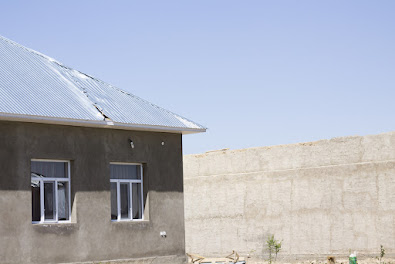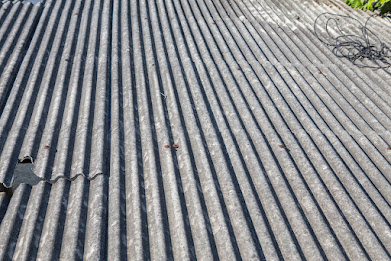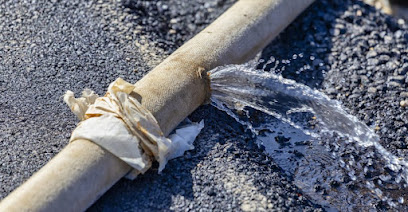The 10 Most Common Types Of Slab Leaks
Water damage is a serious issue that can have a number of negative consequences for your home or business. One of the most common types of water damage is slab leaks. Slab leaks are leaks that occur in the slab foundation of your building. If you are worried that you may have a slab leak, here are the 10 most common types.
Image Source
If you've ever had a slab leak, then you know how important it is to find and fix the problem quickly. A slab leak can cause a lot of damage to your home and can be expensive to repair. In this blog post, we'll take a look at the 10 most common types of slab leaks and what you can do to prevent them from happening in your home.
Slab leaks are very common in older homes. The main cause is faulty pipe connections underneath the foundation, but sometimes they can even be attributed to poor quality cast iron or poorly installed copper pipe.
If you suspect that your home has a slab leak, use these 10 most common types of slab leaks as a guide to know what you're looking for. It will help determine if you need to contact an experienced plumber to take care of the problem (like Roto-Rooter) or if it's something you can handle yourself (with or without this article).
Plastic pipes deteriorate over time due to exposure to water, especially hot water. This causes them to swell and crack open, allowing pressurized water inside the walls. If the leak is not fixed at this stage, you will eventually start to see water coming up through cracks in the floor.
A plumbing vent pipe relieves excess pressure from within a plumbing system and allows air into the pipes so that they may be filled with water again. When these vent pipes become clogged or damaged they can cause serious leaks directly into your home's foundation.
If there are cracks anywhere along the roofline of your home, then it should be assumed that there is probably at least one crack around where your HVAC unit sits as well. Allowing moisture to sit around for extended periods of time leads to rotting wood, rusting metal, and corroded appliances. It leads to mold growth which has serious health consequences.
There are two types of leaks which involve underground piping. One is caused by the pipe itself corroding and cracking, while the other is because something has fallen on top of it (like a tree branch). Either way, these pipes will need to be dug up and repaired or replaced; if there's not too much damage done already.
This one seems obvious but it's often overlooked when searching for slab leaks. It can be difficult to determine where in your home this kind of leak is occurring, and sometimes they happen in more than one room at a time! A drip from an overhead pipe can travel far before making its presence known above ground; causing significant water damage in the process.
Pipes which are installed underground tend to settle over time. This puts pressure on the joints, where they meet the floor of your foundation, and eventually this can cause them to come apart under the weight of all that soil above it. If you have a crack in the foundation then water may be able to seep through into your home's interior.
There are two types of cracks which can occur in foundations; one is vertical and quite common, while the other is horizontal. The first is caused by shifting soil beneath your home's foundation, whereas horizontal cracking usually occurs due to expansion or contraction of material used in construction (like concrete).
Most slab leaks start off as minor problems but quickly become bigger ones if not attended to within a reasonable time frame. This is because water doesn't just disappear, it will continue to sit around and do damage until you find it. The best thing to do is deal with the problem immediately so you don't have to pay more money fixing the damage than would have been required for a new pipe installation in the first place!
If there are any cracks in your home's foundation they need to be fixed right away (preferably before they grow bigger). It only takes an hour or two for water sitting inside of them to cause significant damage; like mold growth, warping materials, rising dampness, etc. Cracks can also be hiding entry points for insects and rodents which want to make your house their own; causing even more problems down the line.
Image Source
Your plumbing vent pipe is an integral part of your home's foundation, and if it fails then the resulting damage can be extensive. The best way to avoid this kind of leak is regular inspection of vent pipes for cracks or leaks; especially around areas where trees/shrubs may be stored near your house (falling branches).
If water has started collecting in certain spots on the ground around your home, and you haven't recently experienced a monsoon or any other natural disaster which would warrant such flooding, then there's a good chance that you have a drainage problem. This could stem from clogs in the main lines leading up to your home, or from poorly placed gutters, spouts, etc.
Conclusion paragraph:
Slab leaks are a serious issue and should be repaired as soon as possible. If you think you may have a slab leak, contact EZ Leak Detection immediately for a free consultation. We have the experience and expertise to handle any type of slab leak repair quickly and efficiently so that you can rest easy knowing your home is safe and sound.
Author Bio:- Karl Brown
Karl, a marketing manager at EZ Leak Detection, loves to write about plumbing and HVAC services to make the life of the reader easier. Leakages in your property can be dangerous but not all the leaks are easily accessible. He has given extensive information about water leaks and slab leaks and tips to detect them quickly along with quick solutions to prevent you from inconveniences and health hazards.
Leakage problems and malfunction of appliances demand comprehensive solutions. Also, regular maintenance is not the thing to be missed for leading a life with zero hassles. Read our recent post related to leakage detection and repair, alerts for HVAC shutdown and how to repair it, and installation of AC and water heater in San Diego.





Comments
Post a Comment